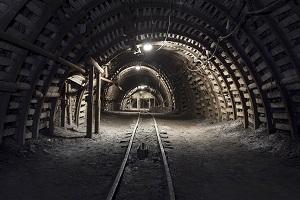
In light of the global focus on decarbonization, which is critical to achieve the goal of keeping global warming below 2°C compared to pre-industrial levels, the energy sector must undergo profound modernization, with a focus on phasing down unabated coal extraction and use. However, to meet decarbonization objectives, similar steps need to be taken in parallel among all coal-reliant industries such as cement and steel. Facing a transformation of such wide scope and depth means that we are now on the eve of a new industrial revolution. A revolution that is likely to dramatically change energy use in not only certain sectors, but also across the regions in which they are based and whose economies to a large extent revolve around them.
The stakes are high, as we might be witnessing a new distribution of economic power among states. Those which decide to go the deepest in their structural changes and engage in a full reorientation of their industrial basis towards low-carbon energy and green solutions are likely to become the new leaders with the most advanced and competitive economies.
At the same time, attractive as such a vision might be to State leaders and decision makers, it has to be remembered that in order to succeed in such a quest, all proposed changes must be not only economically feasible, but also socially acceptable, taking into account opinions and the well-being of the most affected communities.
Decarbonization is likely to create new opportunities and jobs in many, if not all, sectors of the economy. However, it has the potential to do much more than that. If well planned and undertaken with the necessary care, it could be a vehicle for a great technological leap forward, bringing in to play innovative solutions and new business models, completely rearranging the economic, industrial, and thus also social structure of countries. At the same time, as with all changes of that magnitude, decarbonization efforts will surely have some disruptive impacts. These are likely to fall disproportionally on the shoulders of the localities that are economically reliant on energy-intensive industries. In some cases, these are the communities that are least prepared for the change and the incurred costs.
Those regions and the people who populate them are the crucial element of the whole process. It is them who will determine the fate, i.e., the success or failure of the transition. If the future that they are offered satisfies their interests, the task will be accomplished. If, in turn, their needs are sacrificed in the name of the greater good, be it faster economic growth, greater prosperity for the society as a whole, or more rapid and robust emission cuts, the transition is doomed to fail.
As opposed to the first industrial revolution, the current one must prioritize the planet and people, not profits. It is not only a matter of principles, but also of pragmatism. Whatever the expected gains might be, they will not be sustainable without social peace and cohesion. If the latter are missing, the costs will sooner or later overshadow the benefits. In addition, the human aspect of the transition must also be characterized by high granularity and sensitivity, not allowing the concerns of the few to be obscured by the enthusiasm of many. It is the duty of all governments and also of organizations such as the United Nations to make sure that no one is left behind and the transition is just for all.
A “just transition” is an integrated approach to sustainable development that brings together social progress, environmental protection, and economic success into a framework of democratic governance and institutional resilience. Effective “just transition” strategies require local, bottom-up engagement of all affected stakeholders and commitment by governments to guarantee their buy-in and provide planning security.
In that context, the UNECE Group of Experts on Coal Mine Methane, with the permission of its parent bodies the Committee on Sustainable Energy and the Executive Committee, decided to change its name to the Group of Experts on Coal Mine Methane and Just Transition and expand its mandate to include matters related to the ongoing transition of the coal industry’s ecosystem. This change came into effect on 26 January 2022.
As observed by the Chair of the Group, Mr. Raymond Pilcher “the concept of just transition started with labour unions that wanted to ensure that as industrial landscapes changed there were safeguards and support structures in place to ease the hardships that changing economic conditions bring to society and communities when a key industry is no longer viable, and jobs are lost. With the Group’s name change and broadened focus, our goal is to provide help with technical aspects of mine closure and assisting in the development of strategies which lead to mined land repurposing, resource management and sustainable redevelopment of mining communities. These goals require engagement with the people of these communities in concrete ways that promote a future that honours the history and culture of the region while squarely facing the challenges of the future with innovation and optimism. These challenges will necessitate working together with other expert groups, regional commissions and allies outside of the UN to help develop the best outcome for the affected communities.”
The Group of Experts on Coal Mine Methane and Just Transition will meet on 20-21 March 2022 in Geneva and online to continue its work to promote the reduction of GHG emissions from coal mines through activities that help the recovery and use of methane in order to reduce the risks of explosions in coal mines, mitigate climate change, and support sustainable development. The Group of Experts will also discuss the best strategies for incorporating into its work the challenges related to just transition of the coal mining regions and to determine the scope and focus of its activities in that field.
For further information on the Group of Experts on Coal Mine Methane and Just Transition visit the UNECE website.

